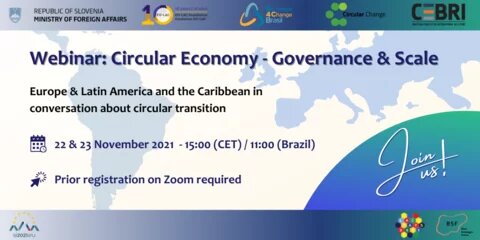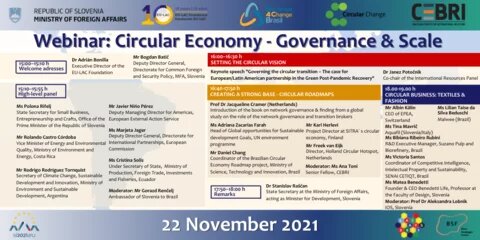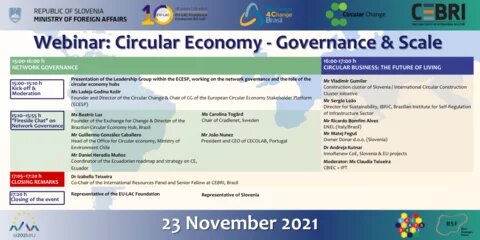
Watch the first part on YouTube here!
Watch the second part on YouTube here!
Read the report of the webinar here!
With the EU Green Deal, the circular economy has become a top priority for the climate-neutral, resource-efficient and competitive European economy. The EU Circular Economy Action Plan recognizes that while Europe intends to lead the process of circular transition, it cannot achieve transformative change by acting alone. A truly global effort and outreach are needed. Latin America and the Caribbean (LAC) region is a natural partner in transformative global change. The region is focused on the implementation of the 2030 Agenda with special emphasis on sustainable consumption and production (SDG 12) through the promotion of innovation, sustainable infrastructure and an inclusive and circular economy. While a wide and diverse network of dialogue and collaborations already exists between Europe and LAC in the area of circular economy, a more systemic bi-regional dialogue is still under construction.
Circular economy features as one of the main priorities of the Slovenian EU Presidency. The idea is to continue the discussion between Europe and LAC and focus the exchange of ideas and solutions on the issue of governance of the circular transformative processes. Through continuous and dynamic public-private sector dialogue, the circular transition could help strengthen existing and open up entirely new chains of added value in international trade. Thus, this event "Circular Economy - Governance and Scale: Europe & Latin America and the Caribbean in conversation about circular transition", co-organized by the Ministry of Foreign Affairs of the Republic of Slovenia, the EU-LAC Foundation, Exchange 4 Brasil, Circular Change and the Brazilian Center for International Relations, offered a platform for business leaders from selected sectors to share their experience and expertise as well as engage in the dialogue about openings for new circular partnerships. The discussions were guided towards exploring potential leads for new business opportunities.

